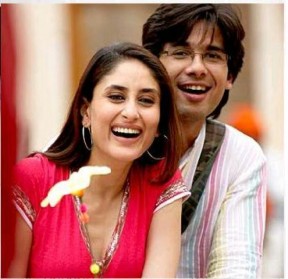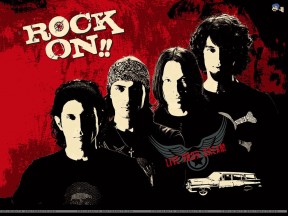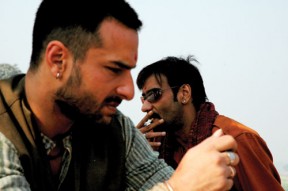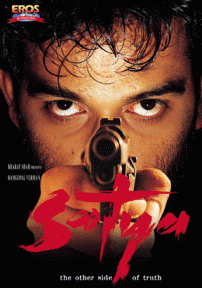India, for the first time after many decades is looking inwards.
And as it does that as a nation, it has started to stare at the truth right in the eye and express itself with an honesty which had become as alien to us as the cinema we had started to make in the eighties and nineties.
For once, India can laugh at itself and also mourn its failures and acknowledge its strengths and weaknesses in equal measure. That is because the new breed of expressionists, be it film makers, artistes or other creative folk, are irreverent to the previous generation, whose apathy has left behind a nation that the young must question and correct.
Indian films died a death somewhere in the late eighties along with the Indian psyche which became inert with hopelessness. The faith in the system was lost. The belief people had in the sense of who they are, had started to collapse. The trash that the business of entertainment began to mete out in the last two decades before the turn of the century, left not just the audience but even the expressionists uninspired, therefore the whole concept of reflecting and mirroring our societies, which the art of cinema stands for, fell into a black hole and lost itself in an abyss of nothingness.
Mindless song, dance, action and storytelling did more to harm the individual than to take him from one stage of progression to another. It had to finally come to its own end with the revolution of technology that took place suddenly and which snatched the power from the hands of the monopolists and gave it to a breed of young, tireless and passionate youngsters who for the first time kicked the fear of failure out of the window and reinvented storytelling by changing the grammar of cinema, enough to turn it into a universal language that began to connect.
Today if an Abhishek Kapoor stands tall with Rock On under his belt and Imtiaz Ali can be proud to have shunned the formula to create another with Jab We Met. If Tarun Mansukhani, Abhinav Kashyap, Anusha Rizvi and Mohit Suri can boast of having given the industry a new direction through a Dostana, Dabangg, Peepli Live and Crook (so what if the last did not do well at the box office), it is because they have the guts and the courage to make a film as they see it. The directors, technicians and actors no longer have to titillate the sensibilities of the debauched if they wish to earn a living from the art they love.
Let’s face it. If it wasn’t the sacrifice of Anuraag Kashyap’s Paanch which still lies in the cans, or for that matter, the audacity of a Vishaal Bhardwaj who plucked Indian cinema from the tulip fields of Switzerland( from where the story could jump to the Sarson fields in Punjab with utter lack of logic and be carried along with its heroines in chiffon saris to places unseen by an average Indian at the time), and took it to a gritty UP, one of the poorest and most backward states in India with his Omkara, cinema would not be where it is today. My own film, the critically acclaimed White Noise, which was a commercial disaster in 2005, left me stumped because only five prints were released by the distributors in a country of 1 billion where 40 percent speak English, the language it was made in.
I cannot but praise the efforts of Ram Gopal Varma’s Satya which was the beginning for the change of idiom, or for that matter many of Shyam Benegals’ and Govind Nihalani’s films which were forced into the art arena by an insensitive and greedy industry which only saw big money to be the criterion, never displaying an intention to take low budget and honest films to larger audiences, across the country through courageous distribution. Also Mahesh Bhatt who created his Arth, Saaransh, Janam and Zakhm with a defiance which required guts that nobody else from his generation ever had. And since he is a favorite film maker of mine, he deserves a mighty applause here.
I have nothing against big money. But I am against twisted minds which only tease the voyeuristic and hypocritical sensibilities of man, without leaving him anything to take home but confusion about his bearings. The present state of general entertainment on television is in the same morass that cinema was in, about a decade ago.
The cinema of the people of India has to be one which reflects Indian lives honestly and young film makers as well as older film makers like Prakash Jha who continue to remain young even now, have started to do that, whether about Indian lives in the back of the beyond Bihar, or in Miami, Florida.
What makes me even more optimistic about the future of Indian cinema is that this present young breed of makers has managed to get the so called superstars to finally have faith in their expression. They have seen to it that the stars enjoy working on characters which are rooted in present times and which are not some robotic Barbie dolls doing a confused Kathak mixed with salsa number in some European country with no footing on the ground whatsoever.
And it is certainly refreshing to see writers and directors today, spoofing the nonsense that we have lived with as we grew up. DevD for instance with its music as well as its take on the desperate Devdas was more than what we had ever asked for. Who wants to cry today over lost love?
Because the truth is that now everybody moves on and forgets the past.
Vinta Nanda is a film maker, writer and social activist. She has written, directed and/or produced trail blazing TV shows like Tara, Raahat, Kabhie Kabhie, Aur Phir Ek Din and Miilee and also made several documentary films on women’s issues. Her first feature film, White Noise won acclaim at the Kara Film Festival, Pune International Film Festival, Florence and Seattle Indian Film Festivals. Vinta blogs on www.vinatananda.blogspot.com and has written for The Times of India, Tehelka, Indian Express, Mumbai Mirror, Sahara Times and Mid Day. Vinta is also the President of the NGO ‘The Village Project India,’ is producing two TV shows and will be producing and directing her next feature Zindagi Paradiso shortly.










